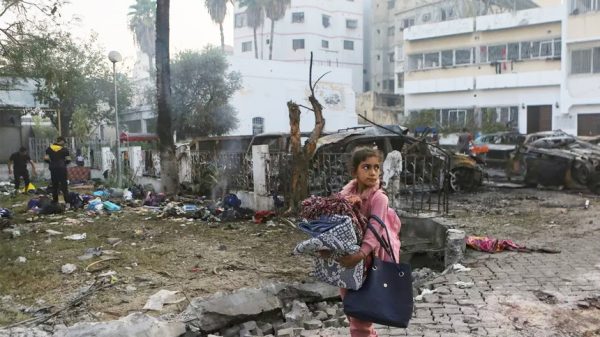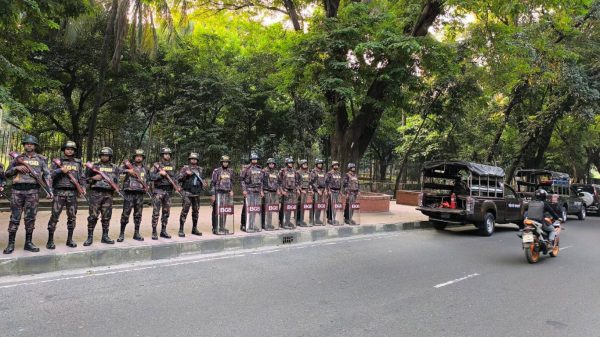Shock and disarray at the Gaza hospital bomb site

- Update Time : Thursday, 19 October, 2023, 12:09 pm
- 91 Time View

Online Desk: According to Palestinian health officials, the explosion at a hospital in Gaza on Tuesday night killed at least 471 people.
They allege an Israeli air attack, while Israel’s military says the blast was caused by a botched rocket fire by Palestinian Islamic Jihad. The BBC went to the area and discovered that body parts were still being gathered.
Mattresses soaked in blood were scattered over the courtyard of the Al-Ahli Arab hospital, along with clothing and personal belongings left behind in the turmoil that followed the bomb and the massive fire, the BBC reported.
More than a dozen vehicles were left wrecked in an adjacent parking lot.
The buildings nearby are also damaged, with shrapnel pockmarks. However, no huge impact crater can be seen, the report said.
People are in a state of terror, unable to comprehend what occurred in a location that was meant to be protected by international humanitarian law. It said.
“We left our home to come here,” a woman who survived the explosion told the BBC. “We thought it would be safe, but then it got bombed.”
Doctors said the majority of the dead were among the thousands of civilians who had sought refuge at the hospital since Friday. They fled there when the Israeli military ordered people to flee the northern Gaza Strip as it increased airstrikes on Hamas, added the report.
Many of those who remained in the courtyard were elderly or infirm, unable to travel south due to a lack of transportation.
One witness told BBC that they were seated on the ground when it was shaken by a massive explosion.
Later, people from all across the Gaza Strip rushed to the area to assist, he claimed. They began collecting dead bodies and transporting injured people.
Those in critical condition were transported away on motorcycles, while those in less bad condition had to walk 3 kms to Shifa hospital.
According to the World Health Organization, despite their protected status, 20 hospitals in the north, including Al-Ahli Arab, have received orders to evacuate their patients and personnel.
The UN agency has stated that the instructions are difficult to follow due to existing insecurity, the severe condition of many patients, a lack of ambulances, and a paucity of beds elsewhere, and has warned that it will “further worsen the current humanitarian and public health catastrophe”.










